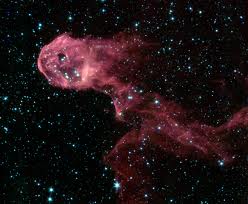The European UnionÔÇÖs FP7 (Framework Programme 7) SPACE programme awarded ┬ú2 million of funding to the three year SPACEKIDS project, which kicked off with a meeting of scientists and industrialists from the Netherlands, France, and Spain at the Cardiff University School of Physics and Astronomy on 28 and 29 January.
The project will work on delivering new and more effective detector technology to see real use in future space missions. These detectors will be designed to survive the extremely cold temperatures of space in order to be used on future satellites to advance studies in astronomy and the EarthÔÇÖs own atmosphere.
The detectors specialise in capturing far infrared light, which has a wavelength a few hundred times longer than visible light. Current far infrared detectors that are in use have been extremely difficult to manufacture and operate, due to their complex nature.
However, in conjunction with other leading European institutes, CardiffÔÇÖs School of Physics and AstronomyÔÇÖs research into new Kinetic Inductance Detectors (KIDs) is offering the prospect of a new wave of detectors which are ultra-sensitive, yet much easier to produce and use.
The SPACEKIDS initiative is hoped to be a bold start for space science in Wales, with the detectors themselves being part of a new generation of instruments set to further research and understanding of the Universe and Earth.
Besides being an excellent opportunity to make use of the expertise and facilities at Cardiff and other institutes, the project boasts very real commercial benefits. Cardiff based QMC Instruments Ltd is an industrial partner of the project, providing the high tech components required by the team and in turn enabling the projectÔÇÖs commercial success.
It may not be long before these Welsh-born detectors could be capturing the infra-bread of the heavens.
Daniel Hill





Add Comment